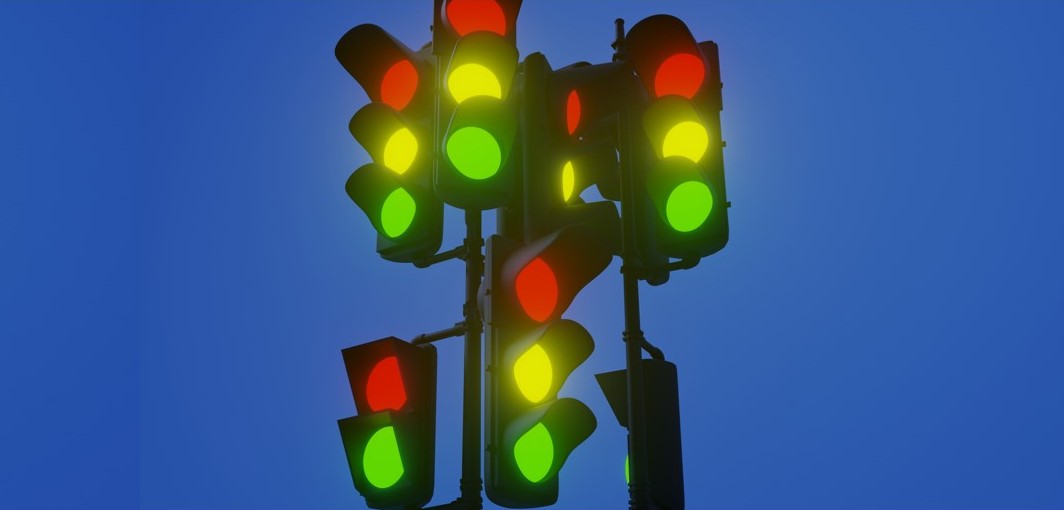Paris, 13 July 2022: What’s your favourite colour? Mine’s blue, which has nothing in common with politics and everything to do with my beloved football team. However, much of the talk in Hong Kong right now concerns red, yellow and green – in other words, a traffic-light style electronic health code which our government believes will make citizens safer from Covid-19.
Yes, my friends, while most of the world has moved on, my adopted city remains (unhealthily) obsessed with the pandemic. Daily case numbers, policy tweaks and updates on virus variants dominate the news. The authorities are sticking with dynamic zero Covid and all the hardship it brings. Their stance on this issue remains, you might say, black and white.
Championing the cause is new Health Minister Lo Chung-mau, who has been busy during his early days in office. First, some cheery news: he scrapped the much-criticised flight suspension mechanism – the policy of halting airlines from flying routes into the city if they exceed a threshold for carrying coronavirus-infected passengers. The move came after the number of flight bans issued this year surpassed 100. The government admitted the policy had caused “unnecessary disturbances” to travellers and was ineffective in keeping out Covid. No kidding! Even so, this revised official view of the flight suspension mechanism might surprise recently departed Health Secretary Sophia Chan, who spent the past two years doggedly supporting it.
Next, Professor Lo revealed his team had formally proposed to Beijing a closed-loop arrangement to reopen the Mainland border under which residents would complete their quarantine locally before travelling north. He then negotiated an increase in Shenzhen’s quarantine units and, as a result, entry quotas, thus enabling more of our citizens to cross the border.
But it was this week’s health code announcement which caught everyone by surprise. Professor Lo plans to introduce a real-name registration system and China-style colour settings for the government’s LeaveHomeSafe app, which residents must use to enter restaurants, supermarkets or practically any type of venue. Red will denote a positive Covid result while yellow will represent active quarantine status for arrivals, both of which will deny users entry to “high-risk” venues. (The Mainland’s system provides a QR code display that is either red, yellow or green, with users only allowed to travel if their status is the latter.) Any other updates from the good professor? Yes! From this Friday, infected citizens must wear an electronic wristband to ensure they will not leave their home.
Not everyone is convinced. Some experts feel the three-colour system is fraught with loopholes as patients can still access public transport and go to work. They also point out that some patients forced to isolate at home will need help. “How can those elderly residents living alone buy food and daily necessities without leaving their home for seven days? asked the Medical Association’s Dr Joseph Tsang. Meanwhile, Francis Fong of the Hong Kong Information Technology Federation highlighted how electronic wristbands used GPS technology and the margin of error could range from 50 to 100 metres. Hence, regulation and enforcement of this colour-coded system would appear to be, ahem, a grey area.
Another concern for some observers – in a city where trust in the government is debatable – is the scope to restrict people’s movements under a political agenda. Over to you, John Lee. Our new Chief Executive shot down this notion at his weekly media briefing yesterday, stressing: “We will not apply any coronavirus measures to areas unrelated to the pandemic. If anyone is trying to stir matters, I can tell them this is not true and residents must not believe such suggestions.” What’s this, our city leader defending a potentially unpopular policy and warning against misinformation? Plus ça change, as my hosts here in Paris might say.
But perhaps it is churlish to dwell on this since our man John has otherwise started his term positively by announcing four new task forces to focus on livelihood issues, including housing, and ordering ministers to formulate policy targets by the end of August. In this regard, he is at least backing up his promise of a “results-orientated” administration. The Chief Executive deserves his honeymoon period so I shall leave him – and you, dear readers – in peace for a few weeks while I take a break from writing. My agenda includes a Mediterranean cruise, departing this Sunday from Marseille, and a weekend at the Hungarian Grand Prix. You will hear from me again in the second half of August.
But back to the all-action Professor Lo. Just today, he has raised the tantalising prospect of quarantine-free travel by November, insisting that “one country, two systems” allows Hong Kong to have its own Covid policies without copying the Mainland. The arrangement would come with strict conditions, perhaps involving medical surveillance and avoiding high-risk areas such as bars. Before pandemic-weary citizens get too excited about this, though, it is worth remembering that most of the world does condition-free travel, period.
Meantime, let’s remind ourselves of the flaming hoops of fire that we (that is me, daughter Marianne, her husband Vincent and their son Nathan) will need to jump through when we return to Hong Kong on 10 August, even after the nightmare of a potential flight ban has been removed. Having managed to secure a (costly) quarantine hotel for seven days, we will still need to be fully vaccinated, present proof of negative Covid tests before flying, test negative on arrival, take daily rapid tests and, in total, undergo six polymerase chain reaction tests in 14 days.
If we can come through all that and earn the right to be released back into our city’s mask-wearing, virus-paranoid, colour-coded society, we’ll be tickled pink.
Stay safe and well, everybody!
Colin Cohen
Senior Partner
Boase Cohen & Collins



